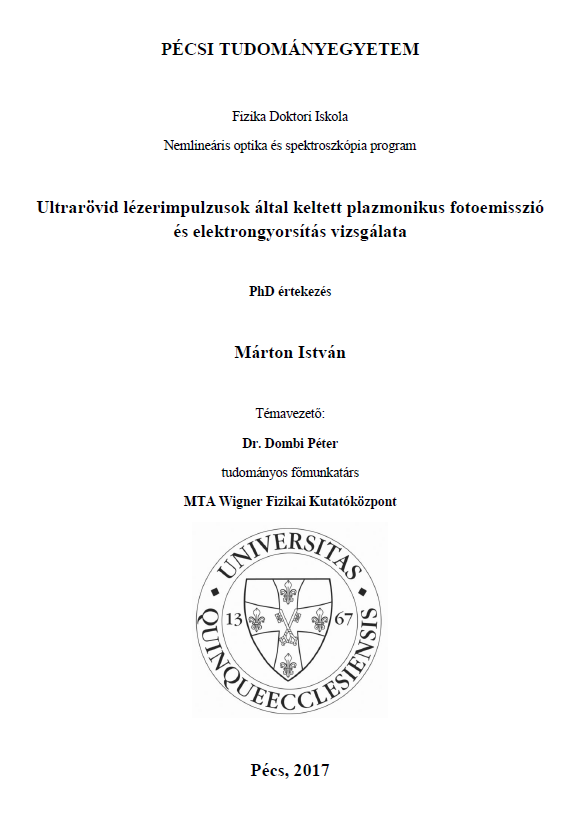Ultrarövid lézerimpulzusok által keltett plazmonikus fotoemisszió és elektrongyorsítás vizsgálata
Abstract
With the development of laser physics, lasers delivering pulsed light appeared and evolved continuously. The application of certain techniques such as chirped pulse amplification and the proliferation of broadband laser materials (laser dyes, titanium-sapphire) and dispersion compensating tools made it possible to significantly enhance the peak intensity of a laser pulse. It also became within reach to control and measure the carrier-envelope phase of the shortest laser pulses.
According to the aforementioned developments and numerous inventions made possible to create shorter and shorter laser pulses. The fields of femtochemistry and attophysics could be developed by exploiting the excellent temporal resolution of ultrashort laser pulses. Investigation of various light-matter interaction processes became a relevant research field of its own and, for instance, the fundamental knowledge about photoemission from a metal surface has expanded significantly in recent years, too.
The research on surface plasmons is relevant both from the fundamental research point-of-view and for possible applications, as well. Surface plasmons are charge density oscillations of conduction electrons along a metal surface. The evanescent electromagnetic field inherently belonging to surface plasmons can be significantly higher than the electromagnetic field of the incident light and this enhancement factor strongly influences the properties of photoemission and the obtained electron bunch.
My presented research in this thesis is about the investigation of the basic and until recently unknown properties of plasmonic photoemission. During my research I intended to identify the effect of surface roughness on plasmonically generated photocurrents and the electron acceleration in the plasmonic field. For this research goal, I performed experiments, I set up models and carried out calculations. Furthermore, I aimed at the investigation of the properties of carrier-envelope-phase dependent photoemission from plasmonically resonant and nonresonant nanoparticles. I obtained corresponding conclusions from calculations based on the appropriate physical model. I also intended to understand the relationship between electron acceleration near nanostructured surfaces and THz radiation generated at these surfaces. I performed experiments to reveal the underlying phenomena.

